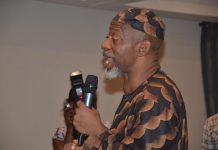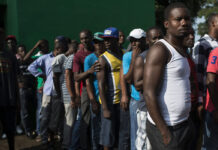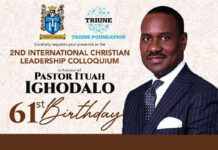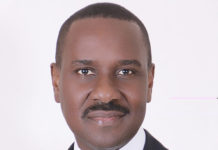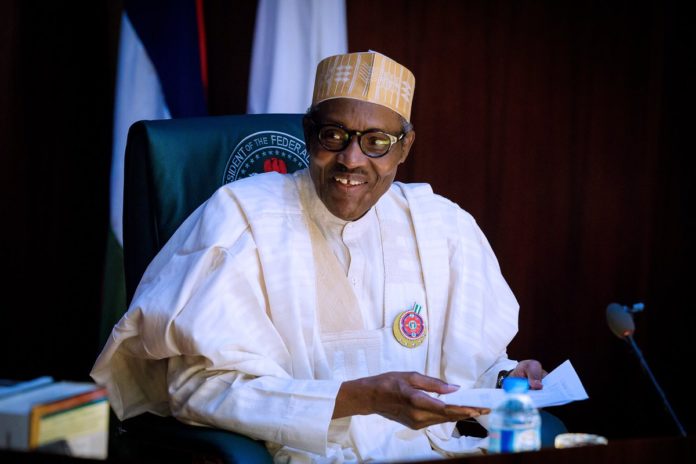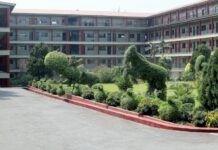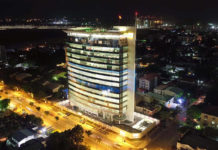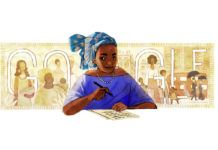– Reviewing President Buhari’s 1st term Performance and Expectations for His 2nd term By George H. Ashiru
The 2019 general elections have come and gone, and while it was attended with unprofessional electoral handling in a lot of instances by INEC, and not measuring up to the standards set by Professor Jega’s 2015 INEC, the results were expectedly, largely a reflection of the ongoing divisions in the Nigerian polity and people. However, it is interesting to note, that while President Buhari apparently received a clear mandate in terms of the general votes, he lost the votes in 17 of the 37 states of the Federation to former Vice President Atiku Abubakar. The stunning loss in Oyo State to the rival party PDP, and the recent elections tribunal declaration of Osun state as being won by PDP’s Mr Adeleke among other key upsets in various governorship elections ar an in indication that without General Buhari on the ballot box, APC may be heading for a whitewash in the 2023 general elections. While several legal battles lie ahead and may determine the fate of various battle grounds it is safe to say President Buhari is likely to be confirmed as duly elected, based on past precedents at the law courts for similar challenges.
It is important to note that the resurgence of the PDP in APC controlled states of Kano and Sokoto in addition to those in the South West of Nigeria may indicate a problem of the APC’s messaging, policies or internal issues. Until the PDP began to implode from within in 2013, that thought of a possible opposition that could give a PDP the challenge, and bring change to a nation in terms of governing ideology was thought to be a mirage. The APC may be headed that way in 2023 except President Buhari can create more populist policies and stem the tide of apathy in the citizenry due to the perception that precious little has changed in the lives of Nigerians since the on-boarding of the “Government of Change” led by a man reputed for spartan honesty and incorruptibility
Nigeria’s political system is bereft of leadership or governance ideologies. In the United States and in the UK and other climes, the political ideologies are basically divided into conservative and liberal, with a few digressions from these parts. These ideologies equally attract citizens who gather under the appropriate platform that promotes and establishes their philosophy of life and governance. These platforms then create strong policies and cultures that influence their promoters to the extent that swapping parties or jumping from one party to the other is almost seen as sacrilege. These ideologies are formed into proper institutions that create doctrines and dogmas for leaders to adhere to whilst in office. Therefore, when a liberal or conservative system pushes a leader into political office, it is expected that his or her policies will be geared towards establishing a liberal doctrine and philosophy. In a few instances, some leaders in these climes have been able gravitate to the centre, especially in their 2nd terms in office, if so lucky. The outcomes of various elections have been influenced by the passions of the opposition parties when a particular ideological position has become unbearable and change is required. In Nigeria, we have never had such a strong ideologically developed political system to predictably hold a leader to ransom to follow tested and tried doctrines of leadership that supports the aspirations of the people. Invariably, our political system has fallen into conditioned reflexes established by tribe, religion and geographical dispositions and even economic circumstances.
General Muhammadu Buhari, a former military ruler was the anchor of a party that coalesced from 5 small parties and a massive wave of defections from then ruling party. He was given a mandate after 3 failed attempts and a short lived military incursion into leadership. He has proven to be a divisive figure in leadership, just because of his uncompromising but unresponsive style of leadership. He has become a father to much of the nation, respect in many parts of the world, yet aggressively hated by others in the nation. It is worthy to note that presidents before him suffered similar fates. Yet, expectations remain that he will “be for everybody, and for nobody”.
The issues that faced him in 2015 largely remained
-Dilapidated refineries,
-Ajaokuta Steel Complex, and other key projects
-The crashing currency
–Reduction in GDP occasioned by the glut in oil prices.
-Insecurity in the North East, restiveness in the Niger Delta
-and so many other.
President Buhari’s first term can be judged on the success of his own stated objectives and priorities from the 2015 campaign season;
“-A country that you can be proud of at anytime and anywhere: where corruption is tackled, where your leaders are disciplined and lead with vision and clarity; where the stories that emerge to the world from us are full of hope and progress. –
A Nigeria in which neither yourselves, nor your parents, families or friends will have to fear for your safety, or for theirs. –
A Nigeria where citizens get the basics that any country should provide: infrastructure that works, healthcare that is affordable, even free; respect for the environment and sustainable development, education that is competitive and outcome-oriented in a knowledge-economy.
A country that provides jobs for its young people, reducing unemployment to the lowest of single digits and providing safety nets so that no one is left behind. –
A Nigeria where entrepreneurship thrives, enterprise flourishes and the government gets out of your way so that you can create value, build the economy and aggressively expand wealth.”
Depending on where you are geographically and industrially, your opinions about the success of these key APC campaign promises will be widely divergent. Let us revise and then analyse the APC manifesto for 2015, which has not been adjusted significantly.
APC MANIFESTO:
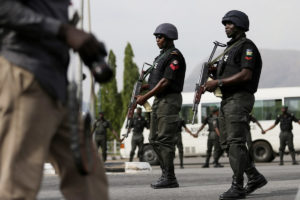
NATIONAL SECURITY -Urgently address capacity building of law enforcement agents in terms of quantity and quality as this is critical in safeguarding the sanctity of lives and property; (The escalated violence in the Middle Belt region and continued violence in the North East and additional kidnappings and killings in the North West has shown that national security remains a mirage. In the South West and much of the South East not much changed from previous administrations)
-Establish a well-trained, adequately equipped and goals driven Serious Crime Squad to combat terrorism, kidnapping, armed robbery, militants, ethno-religious and communal clashes nationwide; (Except for initiatives at some state levels, e.g., Lagos State, I do not think any special squads were created to tackle all the listed crimes by the Federal Government. The Nigeria Police’ own anti-crime initiatives turned out controversial.)
-Begin widespread consultations to amend the Constitution to enable States and Local Governments to employ State and Community Police to address the peculiar needs of each community. This would mean setting boundaries for Federal, State and Community Police through new Criminal Justice legislation to replace the Criminal Code, the Penal Code and the Police Act. (Nothing significant was achieved in these areas, and the justice system itself is going through controversial upheavals even now)
-Push for more support in the security and economic stability of the sub-region [ECOWAS] and AU as a whole and maintain a strong, close and frank relationship with West Africa, South Africa, UK, USA, Canada, and other African countries. (Again these were not known to Nigerians as significant policy initiatives or escalations of existing levels of relationships with these organs.
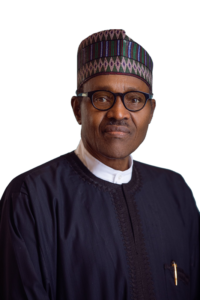
CONFLICT RESOLUTION, NATIONAL UNITY, SOCIAL HARMONY
-Establish a Conflict Resolution Commission to help prevent, mitigate and resolve civil conflicts within the polity; (Civil strife continued unabated and therefore none of these were significantly addressed in a sustainable level)
Bring permanent peace and solution to the Niger Delta and other conflict prone areas such as Plateau, Taraba, Bauchi, Borno and Abia in order to engender national unity and social harmony; (There were no serious initiatives with equity to attain these desires. Wherever there were conflicts the tendencies of government have been to retroactively attend to the aftermaths of the conflicts)
-Initiate policies to ensure that Nigerians are free to live and work in any part of the country by removing state of origin, tribe, ethnic and religious affiliations and replace those with state of residence. (These ideas were tested even recently during the various elections in Lagos State, both in 2015 and 2019, where non indigenes were clearly reminded by the political party leaders that freedom to reside doesn’t give full rights of citizenship. It is safe to say politicians are not committed to attaining to these lofty ideals then pen on paper)
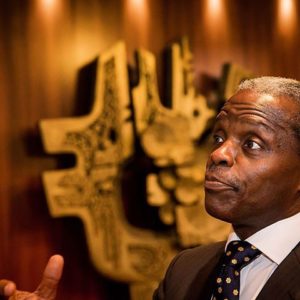
JOB CREATION AND THE ECONOMY -Maintain sound macro-economic policy environment, run an efficient government and preserve the independence of the Central Bank; (The first two years were extremely difficult for the incoming Buhari administration. Our currency fell drastically as a result of both a fall in price of crude oil as well as some policies of the Central Bank geared towards recovery of loot and reducing money laundering. Coupled with protracted illness and absence of the president, the economy regressed significantly, and a lot of borrowing was then embarked upon to stabilise the economy, which has worked in arresting the drift into serious depression. Another four years remain for the government of President Buhari to fulfil on the manifesto of the APC in these regards) -Restore and strengthen financial confidence by putting in place a more robust monitoring, supervising and regulating of all financial institutions; (I believe a lot of regulations are currently being rolled out to enhance transparency and accountability in this sector. However, the government has to be aware that excess regulations scare off investors and increases the time and cost of doing business)
-Make our economy one of the fastest growing emerging economies in the world with a real GDP growth averaging 10% annually; (Nigeria’s economy grew at an average of 2% in the last few quarters and much less in previous accounting periods. It is safe to say, with uncertain crude oil market, 10% is a tall order for the government even going forward.)
-Embark on vocational training, entrepreneurial and skills acquisition scheme for graduates along with the creation of Small Business Loan Guarantee Scheme to create at least 1 million new jobs every year, for the foreseeable future; (At various state levels, like Lagos State, the impact of the Lagos State Employment Trust Fund, which trains and empowers SMEs is visibly seen. Not enough is known about the effort being replicated in other states. The government of President Buhari announced in 2018 that 2million Nigerian smes would benefit from its GEEP programme. Various initiatives have been announced targeting the micro and small business sector of the economy but much more has to be done to provide the enabling environment for this sector to thrive, not simply providing funds)
-Integrate the informal economy into the mainstream and prioritize the full implementation of the National Identification Scheme to generate the relevant data; (The Buhari government made the obtaining of the National Identification Card mandatory for civil servants in 2018, and Lagos State already has a long standing state residents registrations scheme. The ensuing data are required for planning and welfare and are steps in the right direction)
Expand domestic demand and consider undertaking associated public works programmes; (Not sure what specific initiatives and actions to achieve these were so measures are not available to judge performance. However, if the accelerating of key projects like bridges, public roads and transportation are references then a few achievements are evident) –
Embark on export and production diversification including investment in infrastructure; promote manufacturing through agro based industries and expand sub-regional trade through ECOWAS and AU; ( I believe that the Nigerian Export Promotions Council has stepped up its game in recent years by aggressively providing support initiatives to drive non-oil exports. Their website has features that also allow online exporters registry and export development information. Some skill acquisition centres are available to provide support for sme’s who want to export, but I don’t see enough evidence of collaboration with the Nigeria Export Processing Zones and NIPC as well as Standards Organisation of Nigeria, which are all additional services to promote exports and standards to meet the target markets. That should be a priority for government in the next four years)
-Make Information Technology, Manufacturing, Agriculture and Entertainment key drivers of our economy; ( Farming has taken the attention of both federal and state governments in the past few years and rice production is climbing very high to meet local demands and reduce importation, and many aspects of farming are using mobile technology. There is increasing investment in Technology usage in government offices which predates the current administration but not enough use and knowledge of technology by the citizenry. An agenda would be to ensure the school curriculum includes compulsory usage of basic technology widespread public information on the availability of various technology platforms for improved governance)
-Balance the economy across regions by the creation of 6 new Regional Economic Development Agencies (REDAs) to act as champions of sub-regional competitiveness; (This would have been a laudable initiative if it actually took off the ground. I would expect that this should be brought to the attention of President Buhari has a definite way to create equity in economic development) -Put in place a N300bn regional growth fund (average of N50bn in each geo-political region) to be managed by the REDAs, encourage private sector enterprise and support to help places currently reliant on the public sector; (This was never achieved, and provides an opportunity for the Buhari administration to attain as a legacy project.)
-Amend the Constitution and the Land Use Act to create freehold/leasehold interests in land along with matching grants for states to create a nationwide electronic land title register on a state by state basis; (Another wonderful initiative that never got traction. While Lagos state may have introduced electronic systems for registering and tracking land documentation issues, the availability of the manual process means it is bypassed and not many land titles are actually electronically stored. It can be regarded as work in progress that needs to emanate from states and then captured centrally at the federal government.)
-Create additional middle-class of at least 2 million new home owners in our first year in government and 1 million annually thereafter; by enacting a national mortgage system that will lend at single digit interest rates for purchase of owner occupier houses. (Another great idea that was evidently not achieved. On the flip side, real estate development by private corporations may be the biggest growing sector of the domestic economy in several areas presently. This is a matter of great concern to citizens, the availability and affordability of housing and shelter.)
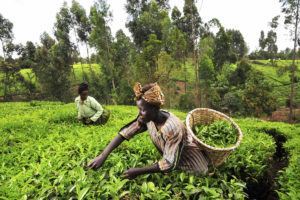
AGRICULTURE AND FOOD SECURITY
-Modernize the sector and change Nigeria from being a country of self-subsistence farmers to that of a medium/commercial scale farming nation/producer; (Thisis a blessing toNigeria, that issues of agriculture and food security has not been seriously threatened in our history. Modernisation will help ensure the continued food prosperity of Nigeria and provide ample supplies for export. It is an area the Buhari administration can do much more as the current appropriation to agriculture still hovers at about 1.5% of the national budget for 2019.)
-Create a nationwide food inspectorate division with a view to improving nutrition and eliminating food-borne hazards;
-Inject extra N30bn to the Agricultural sector to create more agro-allied jobs by way of loans at nominal interest rates for capital investment on medium and commercial scale cash crops; (This also threatened by the fact that the budget allocated to the ministry of agriculture many not be sufficient to attain to the figures proposed, and this should be a forward looking opportunity to the administration) –
Guarantee a minimum price for selected crops and facilitate storage of agricultural products as and when necessary. (Market forces have and should dictate crop prices but storage is an important national food security matter that needs added attention in this next four years)
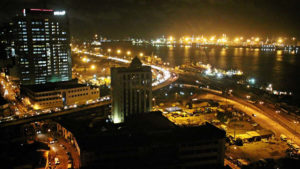
INDUSTRIALISATION -Formulate a robust industrialization policy and provide a conducive environment for a private sector led industrial base for the economy, promote entrepreneurship that would help usher in new industries, new jobs, new knowledge and utilization of information and communication technologies; (As a matter of fact, there is no industrialisation policy associated with the Buhari administration. Activities being carried out peripherally which are key to industrialisation are really a continuation of past policies rather than a new and aggressive vigorously promoted industrialisation of Nigeria. The electricity situation is a pillar that is improving at a slow pace, and so is the revival of Ajaokuta Steel Complex, which is vital to industrialisation. Technical education and a revamp of academic curriculum has not shown a passion of industrial growth of Nigeria, and thus this was not achieved and should be a key agenda of President Buhari)
-Create growth centres through the promotion of industrialization in all regions by encouraging the use of local resources.(I believe that this can be done via the local Governments rather than being a federal goal, yet supported and possibly funded by the federal government)
-Promote innovation by investing heavily in research, development, science and technology.(A key area of interest for industrial growth, but there is little evidence that in Buhari’s first term in office there were key investments or policy driven activities in this regards. Again, a cash cow that can be focused on because of the attention of major countries and companies in African tech growth at the present)
-Support diversification of our economy from export of primary materials to value added goods through supporting the establishment of a solid industrial base. –
Ensure that key agricultural products such as cocoa and rubber go through value addition as opposed to exporting raw materials for industries in other countries. (Cocoa production and export revival initiatives began around 2005 and the Buhari administration declares that Nigeria will now generate about $1.7billion in exports proceeds from Cocoa annually. A much high target ought to be set and achieved over the next four years with the added value and even home-made chocolates added.)
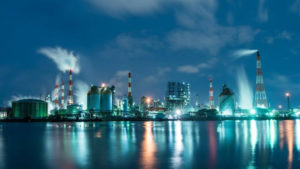
INFRASTRUCTURE -Undertake an urgent review of the Public Private Partnership (PPP) enabling environment with a view to addressing the legal, regulatory and operational challenges including introducing enabling legislation where necessary. In addition, we shall create a National Infrastructural Development Bank to provide loans at nominal interest rates exclusively for this sector to help rebuild our infrastructure and provide gainful employment; (The contentious and turbulent national assembly of the past four years did not introduce or pass for presidential accent much of the first two years, and when some scaled through a few were sent back by the president. Safe to say the proposed development bank was not introduced so the Bank of Industry remained the go to financier of big projects.)
-Generate, transmit and distribute from current 5,000 – 6,000 MW to at least 20,000 MW of electricity within four years and increasing to 50,000 MW with a view to achieving 24/7 uninterrupted power supply within ten years, whilst simultaneously ensuring development of sustainable/renewable energy; (According to the US Government, Nigeria has the capacity to generate 12500 megawatts of electricity, in actual fact, in the past four years we peaked at about 7000 megawatts and averaged at 5000 megawatts. Safe to say the Buhari administration was dramatically short of their lofty target. Yet, electricity is the hall mark of development and needs aggressive attention over the next four years. What the president should be looking is to achieve a realistic 15000 megawatts after four years if the GDP and exports continue to grow.)
-Embark on a National Infrastructural Development Programme as a PPP that will ensure the (a) construction of 3,000km of Superhighway including service trunks and (b) building of up to 4,800km of modern railway lines – one third to be completed by 2019; (The Buhari administration notably extended work on the rail infrastructure, including several new lines and coaches. A total of about 3500 rail lines are involved in the current expansion and should be extended aggressively over the next four years.)
-Enact new legal and regulatory frameworks to establish independent regulation and incentives to accelerate public and private sector investment in seaports, railways and inland waterways;-Embark on PPP schemes with a view to ensuring that at least one functioning airport is available in each of the 36 states. (The building of airports is expensive and time consuming. The target set was quite ambitious and did not consider local politics and other budget issues. Nonetheless, more airports are not what we require if there are not enough aircrafts to ply them and justify their existence. This cannot be taken in isolation but as part of fresh initiatives on aviation, which will require the participation of all key stakeholders. It is imperative that the seaport in Lagos be moved elsewhere because it is obviously poorly located. No noticeable traction was garnered in direction of establishing new seaports and inland waterways by the Buhari administration in the past four years. It behoves on the government to ensure these are achieved in the next.)
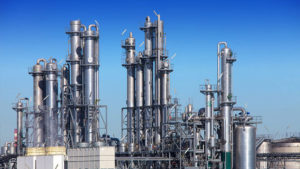
OIL AND GAS INDUSTRY –Make the industry and Nigeria one of the world leading/cutting edge centers for clean oil and gas technologists, scientists, mega structure installation, drilling, processing, production engineers supported with best services and research facilities; (Until the recent tender for the Bonga South West fields became activated after a few years in the limbo, not much new investments when into the sector to justify any pass mark over the ideals stated. The concept of renewable energy, sustainable energy and suchlike are under scrutiny now that oil prices are very vulnerable and OPEC seemingly losing the influence it once wielded in the sector.)
–Fully develop the sector’s capacity to absorb more of the nation’s new graduates in the labour market. The sector will produce more home-grown world class engineers and scientists;(The contrary is the trend. Energy companies are pursuing lean policies and shedding weight, outsourcing where required.) –
Modernize the NNPC and make it the national energy champion. Consider breaking it up into more efficient, commercially driven units and strip it of its regulatory powers and enable it tap into international capital market;(This was an ambitious statement that in reality was going to be difficult to achieve, yet, in 2017 the controversial Petroleum Industry Bill was passed by the Nigerian Senate and forwarded to the House of Representatives and subsequently if passed, to President Buhari. First introduced in 2008, it was the panacea to the issues in the petroleum industry in Nigeria. Perhaps, the goal of the President in this term is to ensure the Bill is signed and effected into law and thereby add that to his legacy.)
–Enforce the government master plan for oil companies to end flaring that pollutes the air and damages people’s health and ensure that they sell at least half of their gas production within Nigeria; –
Speedily pass the much-delayed Petroleum Industry Bill (PIB) and ensure that local content issues are fully addressed; (The National Petroleum Investment Management Services (NAPIMS) is established to also ensure that all NNPCs investments and joint ventures are professionally managed and local content input protected. That is already in operation. However, the PIB is still a floating mine)
-Make Nigeria the world’s leading exporter of LNG through the creation of strategic partnerships.
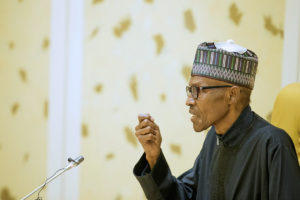
EDUCATION —Fully implement and enforce the provisions of the Universal Basic Education Act with emphasis on gender equity in primary and secondary school enrolment whilst improving the quality and substance of our schools;(It is time for a considerable reform of Education by a radical departure from the purely academic orientation of our educational system to a a combination of academic, technical and skill acquisition methodology with accruable academic points for all other non-regular academic programmes that have experiential value.)
–Targeting up to 15% of our annual budget for this critical sector whilst making substantial investments in training quality teachers at all levels of the educational system;(In the 2019 budget, education was proposed to take 7% of the national budget. While that is not empirical proof that the amount appropriated is small, it means, as a priority, the goal of 15% is yet to be met. Because education is key to national development yet the foundation to children’s education at the primary level is notionally in the care of Local Governments, then clearly a wholistic appraisal and tracking of LG performance in this sector is key. Literary levels are a benchmark for national development and until all Nigerians above the age of 10 have had at least 5 years worth of formal education behind them then we will not meet any major milestones for national development in the decades ahead.)
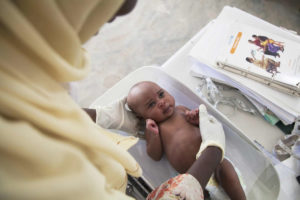
HEALTHCARE —–Prioritize the reduction of the infant mortality rate by 2019 to 3%; reduce maternal mortality by more than 70%; reduce HIV/AIDs infection rate by 50% and other infectious diseases by 75%; improve life expectancy by additional 10 years on average through our national healthy living program; (The rate of increase in heart diseases and cancers has put paid to the argument to increase life expectancy by ten years in under four years. Access to health care is not yet universal and most Nigerians do with traditional healthcare because its cheap, easily accessible and informal. This indicates that we don’t yet have national strategy for basic universal healthcare that guarantees every Nigerian affordable care, and cheaper premiums for serious health conditions. On paper, these ideas have been implemented by various governments, but in practice no major achievements have been recorded. The private HMOs have taken a slice of the burdens partnering with private hospitals, but the premiums are often above minimum wage.)
-Increase the number of physicians from 19 per 1000 population to 50 per 1000; increase national health expenditure per person per annum to about N50,000 (from less than N10,000 currently); (Doctor training takes a minimum of eight years, including the “Houseman-ship” and NYSC years. Increasing number of physicians therefore requires an academic plan backed by scholarships and entrenched over a 10 year period, and not a single term of office. President Buhari can revisit this matter by looking holistically at the various medical needs of individual states in the country.)
-Increase the quality of all federal government owned hospitals to world class standard within five years; ( The short answer to this is, it has not been achieved, and therefore begs for attention over the next four years) –
Invest in cutting edge technology such as telemedicine in all major health centers in the country through active investment and partnership programs with the private sector; (Again, this sounds more like unrealistic campaign promises rather than achievable plans. Cutting edge technology is not necessarily over the counter, and requires design, build and implementation and support. All of which needs proper funding and political will to achieve. In the next four years, President Buhari can look at achieving this by tasking the Ministry of Science and Technology to invest time and resources into bio-medicine) –
Provide free ante-natal care for pregnant women, free health care for babies and children up to school going age and for the aged and free treatment for those afflicted with infectious diseases such as tuberculosis and HIV/AIDS; (I do not believe any really free medical services promised were consistently delivered to voters. Public servants do get these benefits, but not the general populace. Most cases, these treatments are paid for because they are unbundled from the consultation, which could be free in some instances, while the drugs and treatments are paid for.) -Boost the local manufacture of pharmaceuticals and make non adulterated drugs readily available.
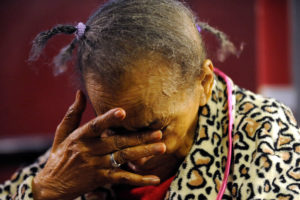
SENIOR CITIZENS, YOUTH SPORTS AND CULTURE –Ensure timely payment of retirement benefits for all pensioned senior citizens and create a poverty safety net for all aged citizens above the age of 65;(Pensions are a sore area for most and the processes for ensuring pensioners are paid as at when due has been a long standing problem exacerbated by criminal negligence and fraud. If this area is well taken care of by the president Buhari administration then the positive ripple effects could impact the party’s fortunes after the end of his term in office.) –
Provide the opportunities for youths to realise, harness, and develop their full potentials and to facilitate the emergence of a new generation of citizens committed to the sustenance of good governance and service to the people and the country;
Establish world class sports academy and training institutes and ensure that Nigeria occupies a place of pride in global sports and athletics; (With a direct knowledge of this sector I can attest to the fact that these goals were not attained. The government of president Buhari underperformed compared to the previous administration by treating sports as a CSR or a purely social non profit activity. As we approach the 2020 Olympics this is the time for the president to launch a special trust fund for the Olympics and hand the controls over to a Trust with the Nigeria Olympic Committee driving the programme while the sports ministry drives the search and development of talents.)
FOREIGN POLICY
–Make regional integration a priority within ECOWAS including free trade with a view to ensuring that a common tariff and currency are achieved by 2020 under Nigeria’s guidance and leadership;(There was no real drive to achieve this lofty goal in the last four years. It might be argued that it would be difficult to achieve until all the economies of the region are relatively at par and the national laws amenable to quick change as was assumed. This is not a priority for Nigerians.)
-Establish a new special relationship with the leading emerging markets like Brazil, Russia, India and China (BRIC) and other strategic partners around the world. (I believe that while Nigeria was taken more seriously by foreign nations with the election of a former soldier reputed for his integrity, the direct foreign flow of investment hasn’t matched up to the peaks of previous administrations. We cannot really score the last four years as remarkable in the area of foreign policy thrust or initiatives. I think Vice President Osinbajo should be given the opportunity to lead the foreign policy initiatives of Government to be more effectual.)
As at 2015, the core areas President Buhari should focus on remains;
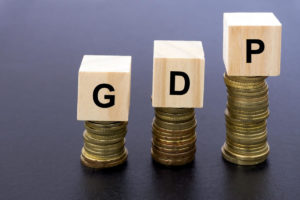
Civil
Service Reforms
Reform, re-train, re-energise the Civil Service. Employ the best, pay industry standard, and watch official corruption nose dive, and public efficiency sky rocket. The reform of the civil service making it leaner, recruitment by merit of professionals and disciplined use of resources by both the political leaders as well as the staff can lead to many positive developments in efficiency of most areas of government. Vast use of technology and artificial intelligence to aid decision making in governance should be added at this juncture for a more efficient public service.
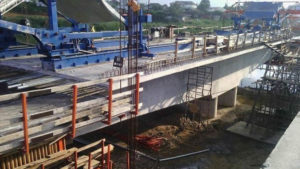
Constitutional Reforms
The last few years has had cries of true federalism drummed up in the polity. The constitution inherited from the past military government is no longer adequate for the needs of Nigeria. A robust and equitable constitution will eradicate major grey areas that cause unrests, inequality and even impunity in our system of governance.
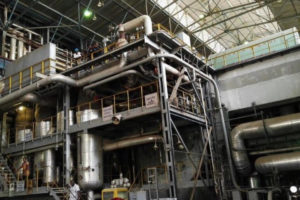
Re-engineering
our Economy.
Currently, government generates most of its income from the proceeds of sales of crude oil. Major diversification will need serious investments, yet is unavoidable as the glut in oil prices are predicted to continue for the foreseeable future. Clearly, internally generated revenue has to increase, but loopholes where corruption have thrived also needs to be closed so that public expenditure can be more effective. Agriculture, mines and steel, and leather are still areas we can leverage on present skills set to invest upon to increase our non oil revenues to 50% within the next four years. Entertainment and sports and mobile technology are the key drivers of tomorrow’s economy, and the Buhari administration will ignore this at their peril.
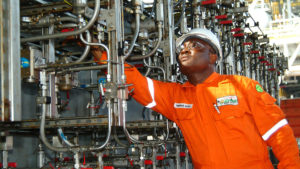
Energy and
Power
The privatisation of energy distribution has had a negligible effect on electricity supply to industries and consumers. Consequently, the huge foreign exchange drain on our economy from imports of millions of generating sets increase. The increased pollution of the atmosphere increases global warming, adds to pulmonary diseases which increases healthcare costs and reduces productivity. This area is one that might require a massive international loan intervention in order to increase both available power generation as well as efficient distribution of same.
Education
and Vocational Development
Our academic system is majorly inefficient in preparing a 21st century work force. Emphasis in the Asian Tigers was on vocational and technological skills rather than the theoretical academic soft skills focus of our academic system. Emphasis has to shift to investments in technical education, entrepreneurship skills development and engineering. This focus doesn’t change for the foreseeable future.
Infrastructural
Development & Transportation
The terrible road networks, the lack of adequate rail facilities makes the transportations of goods and people expensive, insecure and a major drain on the bottom line of entrepreneurs. Therefore, again, these are areas that investments are a necessity as the cost of goods will be lower if the cost and time of moving them are reduced by the availability of appropriate infrastructures. President Buhari should look at creating new train lines to and from where the greatest transport of goods and services and people occur.
Security and
National Defence
It can be argued that security will improve just by eradicating poverty. But a check on relatively developed nations like the U.S. and U.K, show that pathological criminality will always remain. Therefore, the type of security a nation needs must be a proactive intelligence biased type. That requires a massive recruitment in all sectors of the intelligence and defence apparatus of high IQ individuals and comprehensive long term training to make them capable of preventing crime, as well as arresting those who do commit them. The continued conflicts in the North Central and the North East of Nigeria has shown that our military is still ill equipped in meeting the challenges of internal insurrection as well as asymmetric war fare. That lesson has now being learnt but the next four years must work to apply lessons learnt.
Social
Development & Sports for all
It has been argued by professionals that when a large majority of citizens are under the age of 30, in the case of Nigeria, 120million plus, and they are not engaged in education, sports, or entertainment, then they many will become prey to criminality. So, while successive governments have seen sports as entertainment, intelligent governments in other parts of the world see it as an opportunity to tap into the energies of the young for nation building, international glory, create a healthy nation reducing cost of healthcare and reducing criminal opportunities. As I noted earlier, sports is not mere CSR. Sports for all can reduce crime and healthcare costs.
Health
The Obama administration fought and won a major reform in the healthcare system of the United States. It shows the critical importance of good healthcare to any nation. Every tax paying citizen in Nigeria should be guaranteed emergency healthcare free of charge, and should have access to cheaply subsidised insurance for other major procedures. The relative cost and inadequate supply of medicare facilities has turned most citizens to self-help or quack help methodologies. Invariably, people are dropping dead from treatable ailments just because they weren’t diagnosed on time or couldn’t afford the treatment. That should never be the testimony of any responsible government. A sick society cannot become a great nation.
Justice
Impunity is the order of the day because most people cannot afford legal aid for both criminal and civil matters. The lack of trust in the justice system is the reason many take the law into their own hands. A lawless society or one where justice can be bought, does not promote equity and security. Therefore, the new administration should enforce all laws and be subject to those same laws. Impunity is associated with the political class and the rich. The controversies concerning the justicies and judges of the federation is not helping the feeling of helplessness in the nation. Sacred cows and selective justice, whether real or imagined doesn’t create confidence in the citizenry about government’s intentions to legally fight corruption.
Foreign Relations
The tendency of government has been to reward political supporters with cabinet positions, many of whom have no understanding or bias for those positions and the associated tasks. In international diplomacy there are spoken, and unspoken diplomatic languages that professional diplomats exhude. Our friendships and international networks must be maintained by the right kind of professionalism. The staff of our embassies abroad have to be on performance tracking platforms. The shifting alliances of world politics should never escape us, and we must be wary of confining our influence to Africa alone.
Petroleum
The famed Petroleum Industry Bill is one of the acts of the National Assembly, which General Buhari’s party has promised to pass into law. Four years later, this bill is still facing hurdles in becoming law. This must be a priority of president Buhari in 2019 alone. Other reforms must follow. The repair or sale of the refineries will stem the payment of subsidies for imports. More refineries must be built because the internal demand for PMS will increase as the traditional economy grows even when crude oil exports slow. A more thorough accounting system is required to stem the loopholes of the lack of remittances to the Federal accounts. Liquefied natural gas is the industrial engine of the future so we need to keep investing there and also building tank farms or increase pipelines to supply industrial areas and regions of the nation. More oil fields need to be explored and that industry should remain at the forefront of technology.
National Orientation
As a nation with many dialects and peoples, the greatest challenge of any President is how to lead without exhibiting bias towards or against certain regions or groups. The difficult terrain of respect and regard for our ethnic and religious differences should be skillfully handled without sacrificing merit in the order of governance. That may mean additional subjects be introduced to primary school education that enforces learning about other cultures of the nation so as to encourage a future citizenry more amenable to each other’s differences. Internal biases are taught and not instinctive. We must demonstrate through positive body language, that we are for nobody and for everybody.
Cabinet Offices
At the end of the day, no matter how lofty the ideas and ideals and leadership style of the President of the nation, the types of people who work in his cabinet, and who advices him will determine the output of his government. It is critical for General Buhari to carefully ensure that he now appoints into the core ministries of the executive, true thorough-breds that have both professional and managerial skills as well as the leadership philosophy of the head of government. While long term consistency is required, all ministers should be on a two year performance based leash. That way, the four year term of the government will be filled with a flurry of driven leaders. It is clear to us as citizens that loyalty is often rewarded more than competence, but President Buhari in his 2nd term should seriously now think about his legacy.
Conclusion
General Buhari has, on his fifth attempt, tapped into the inner recesses of the wish of the Nigerian masses and return to power for the second time democratically. He will remain under tremendous pressure to fulfill not just his party’s manifesto, but the unidentified yearnings of the people for a leader they can believe in and who can lead the nation into broader road or economic emancipation, security and general well-being regardless of partisan affiliation. His major task should always be to listen to all the people all the time, and they will provide impetus concerning the direction he should go
George H, Ashiru is Convener, Town Hall Meetings Project (THMP). A Chartered Manager, and a Certified Management Consultant



